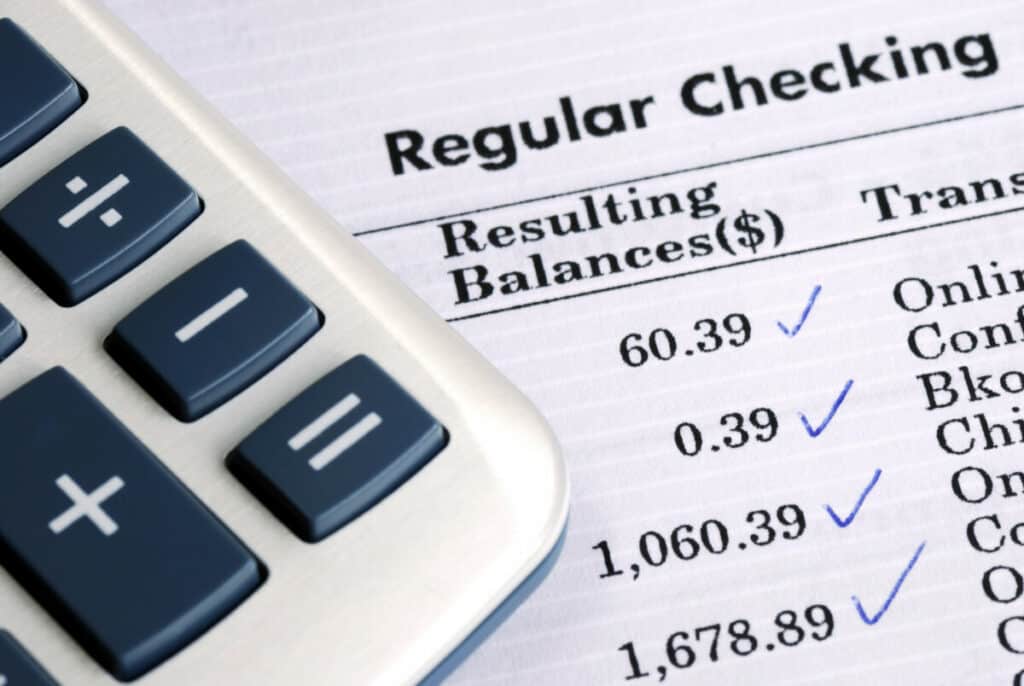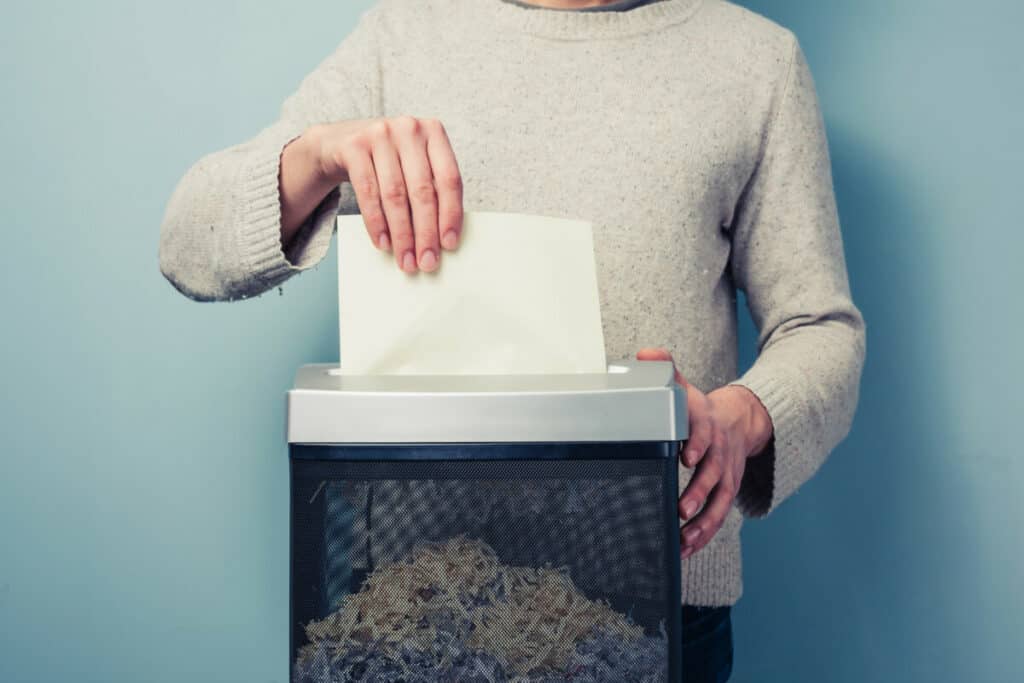
When people receive bank statements, they often keep them for a few years in case they need them to do their taxes or to help them keep track of the financial situation of their business. However, after a few years, old bank statements take up a lot of space in your home. What should you do with old bank statements?
Old bank statements should be scanned, redacted, then shredded so no information can be read. If old bank statements can be read by others that the statement is not about, identities and vital information can be stolen, which can be detrimental to lives and finances.
To find out more about why you shouldn’t just throw away old bank statements and what you should do instead, keep reading.
What to Do with Old Bank Statements
You need to destroy old bank statements before you throw them away or recycle the paper. However, you should scan them onto your computer before you destroy them so you have an easily accessible record of the information, just in case you need it later. Some of the most popular methods of disposing of old bank statements are:
- Shredding
- Tearing up multiple times
- Putting them in compost
- Blacking out the text with redacting tool
- Soaking in water
- Burning
It is incredibly easy to shred old bank statements after you have scanned them. Shredding is one of the best methods of disposing of old bank statements. It is incredibly hard to piece shredded paper back together, so no one will be able to use the shredded remains of your old bank statements to steal your information. Most shredders don’t take up much space and only cost $10-$50.
Tearing up old bank statements is incredibly easy, although some types of paper are harder to tear than others. I don’t advise cutting up old bank statements, as it is incredibly easy to piece them back together. Torn old bank statements are hard to piece back together to read and steal your information, especially if you tear them up into small pieces.
Putting torn or old bank statements is not often done, but it gets rid of them completely. However, it takes a lot of time for the paper to dissolve, especially if you simply put full bank statements (not shredded or torn) into your compost pile or bin. Don’t put old bank statements in your compost bin/pile when the public could possibly access it, as you never know who will dig through your compost bin.
Many people choose to use a redacting tool or pen to hide information on their old bank statements before throwing them away, and it is very effective. You can use a special redacting tool or pen, but if you don’t have either you can use a black Sharpie or black marker. Just make sure you can’t read the information you tried to blackout, even when you hold it up to the light.
Soaking your old bank statements in water stains the paper after it dries, making it hard to read the information. It is best to mash or shred the paper once it is wet, as this helps the paper dissolve quickly, but if you simply soak old bank statements in water for a few hours, the ink will disappear. You can then throw away the mushy old paper.
Burning your bank statements is often fun and completely destroys them. You can use your old bank statements to help you start a fire or simply add it to your fire pit as a fire is blazing. You can even burn the bank statements that you shredded.
It is up to you how you destroy your old bank statements, but there are plenty of options for you to choose from.
Why You Should Destroy Old Bank Statements

The main reason you should destroy your old bank statements is so people can’t use them to steal your information or identity. If people have your information, they can create bank accounts in your name, open credit card accounts in your name, and steal your identity.
If they spend a lot of money or get in trouble with the law, you could be held accountable for it. Thousands of lives have been ruined because thieves opened bank accounts in their names and stole their identities. If your identity is stolen, report it to the IRS. If you notice you are receiving bank statements from accounts or banks that you don’t have an account with, report it to the bank you are receiving notices from.
Best Redacting Products
Redaction is one of the most popular ways people make their bank information unreadable to the public. Here are three of the most popular redacting tools.
Azumic Identity Theft Protection Roller Stamp
The Azumic Identity Theft Protection Roller Stamp costs $19 and comes with 6 ink refills. It is rated 4.5 stars by consumers and comes in white or blue, although the ink is pitch black. This roller stamp is easy to use and wide enough to block out a lot of information at one time.
KENOBEE Identity Theft Protection Stamp Roller
The KENOBEE Identity Theft Protection Stamp Roller costs $10 and comes in yellow, red, blue, or purple, but the ink is black so no matter what, you won’t be able to see what you redact with this tool. It is rated 4.4 stars and is easy to refill the ink once it runs out. However, this tool does not come with any ink refills.
Secure Marker Redacting Pen
This Secure Marker Redacting Pen is perfect for redacting bank statements or certain phrases on documents. If there is not a lot of information you need to redact on an old bank statement, one of these pens is perfect. A pack of 5 markers costs $22. These pens have a chisel tip that dispenses black ink, so you can cover text easily in one swipe.
Although it may seem like a hassle to have to redact, shred, burn, or otherwise dispose of your old bank statements, it is worth the hassle because your information will be kept safe. It is better to take a few minutes to make your old bank statements unreadable to strangers than have to pay thousands of dollars because your information was stolen.
Related Topics:
If you like the article above, here are some other similar articles you should check out!
What Should I Do with Old Clothes
